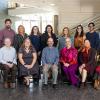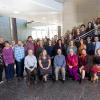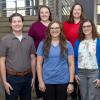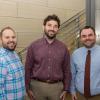(2023-2026)
Medical School: A.T. Still University of Health Sciences Kirksville College of Osteopathic Medicine (2015-2020)
Residency: Pediatrics; University of South Dakota, Sanford School of Medicine; Sioux Falls, SD (2020-2023)
Research Interests: Weight Loss Induced Effect on Lean Body Mass and Muscle Physiology: A Pilot Study Utilizing Tirzepatide, a GIP and GLP1 Co-Agonist
Pediatric Endocrinology Fellowship
About the Program
The effective practice of pediatric endocrinology requires thorough grounding in the theory and knowledge of normal and abnormal physiology and pathophysiology in endocrinology patients from infancy until adulthood. It also requires the acquisition of clinical skills, the effective application of knowledge and skills in diagnosis and treatment of patients, and life-long learning with continuous critical examination of our assumptions.
Our Pediatric Endocrinology Fellowship Program is a three-year training program that has been fully accredited by the Residency Review Committee of ACGME. Applicants must have completed a certified residency program. Visas accepted by program include J1 and H1. Our program has a history of clinical and bench research opportunities, including the option of a T32 training grant in diabetes.
Grant Resources FOEDRC T32 Trainees
Diabetes Research Center Laboratory Websites
Pediatric Endocrinology Fellowship Trainees Receive:
- Stipend
- Outstanding benefits, including comprehensive health care services for the trainee’s entire family, dental, relocation resources, etc.
- Paid time off – 15 working days and six weekend days, not including maternity leave and paternal leave for birth or adoption
Accreditation/Benefits
ACGME - The Pediatric Endocrinology Fellowship is an accredited three-year fellowship.
Benefits - including comprehensive health care services for the trainee’s entire family, dental, relocation resources, etc.
Paid time off policy
Schedule
The Pediatric Endocrinology Fellowship schedule provides for a mix of clinical and research time to meet ACGME requirements while providing flexibility for the fellow's chosen career.
| Inpatient | Outpatient | Research | Weekends | Continuity Clinic | |
| Year 1 | 4 months (16 weeks) | 2 months (8 weeks) | 6 months | 10 | 1 half day per week |
| Year 2 |
3 months (12 weeks) |
1 month (4 weeks) | 8 months | 10 | 1 half day per week |
| Year 3 |
3 months (12 weeks) |
1 month (4 weeks) | 8 months | 12 | 1 half day per week |
An example Inpatient clinical week for a first-year fellow would include:
-
Daily Endocrine teaching rounds with residents, medical students, and the attending pediatric endocrinologist.
-
See inpatient consults.
An example Outpatient clinical week for a first-year fellow would include:
- A weekly Continuity Clinic.
- 4-6 Endocrine clinics, comprising of general endocrine, diabetes, and other sub-specialty clinics.
- Resident and student education sessions.
Clinical Rotations
Our Pediatric Endocrinology outpatient clinic is active, with over 3500 visits annually. We follow approximately 1000 patients with diabetes. We have an extensive referral base within the state of Iowa, as well as surrounding states.
Clinical time includes covering the inpatient service (consults and new endocrine patients) or outpatient clinics (endocrine clinics and electives).
While on inpatient clinical service, the fellow will admit any new endocrine patients and take new consults from general pediatrics and he other pediatric sub-specialties, including NICU and PICU. The fellow will be first call for outside consults. The fellow will take calls during the weeknights.
Outpatient clinical service is divided into 1-2 week stretches throughout the year. The fellow may choose to attend various subspecialty clinics during that week with one outpatient week consisting of 8 half-day clinics (in addition to the fellow ½ day continuity clinic on Thursday afternoons).
While on inpatient call weeks, we have policies in place to recognize fellow fatigue and will transfer call responsibilities back to the attending physician if there are any concerns of excessive fatigue indicated by either the fellow or noticed by the attending physician. We have policies in place to recognize fellow fatigue and transfer "first call" back to attending if there are any concerns of excessive fatigue by fellow or faculty.
Fellows will have a continuity clinic for one half day weekly which is staffed by the on-service faculty and allows the fellow to develop their own panel of patients.
Throughout the three years of training, our program offers a significant amount of flexibility in scheduling so that clinical service is intermixed with research in a way that best supports the individual needs of the fellow. The fellows meet annually to plan the annual clinical service calendar. Changing clinical service dates is possible through trading shifts with other fellows.
Electives
Fellows may choose electives and attend sub-specialty clinics within and outside of the division.
Electives and sub-specialty clinics include, but are not limited to, the following:
- Diabetes Camp
- Reproductive Endocrinology
- Laboratory medicine/Pathology
- Adolescent medicine
- Adult Endocrinology
- Brain Tumor Clinic
- Neuromuscular Clinic
- Genetics
- Cardiometabolic Clinic
- Lipid Clinic
- PCOS Clinic
- CFRD Clinic
- Endocrine Surgery
Education/Conferences
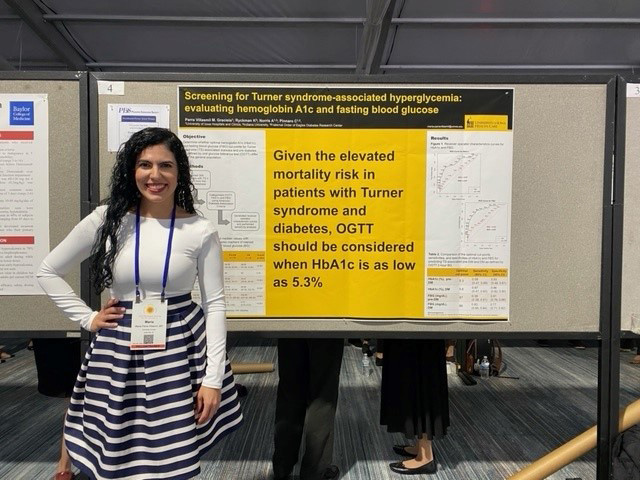
As trainees proceed through our program, it is expected they will actively engage in the process of their own education. To enhance educational skills of trainees, each pediatric endocrinology fellow is required to give four to six didactic presentations (e.g., review a clinical topic, etc.) and/or research updates annually.
Pediatric Endocrinology Division Conferences (required)
- Weekly.
- Purpose: Presentation of interesting or challenging clinical cases.
- Includes monthly topic presentation alternating with Journal Club, led by first year fellow with mentorship.
- Includes Monthly Board Review.
Combined Adult and Pediatric Endocrinology Grand Rounds (required)
- Weekly.
- Purpose: Didactic lectures on various topics.
- Fellows will present yearly.
Endocrine Immersion (expected)
- Every other Tuesday.
- Purpose: Fellow-centered discussions with program director and guest faculty going over a complicated case or an advanced topic in-depth.
Clinical Endocrine Conference (expected) (Time slot competes with core curriculum. See below; some are required.)
- Weekly.
- Purpose: Comprises internal medicine (adult) endocrinology cases and core curriculum topics.
Pediatric Fellows' Core Curriculum Conference (expected)
- Weekly.
- Purpose: To cover ABP required topics and provide each fellow with an opportunity to present their research.
Pediatric Grand Rounds (optional)
- Weekly.
- Purpose: Presentation of topics of relevance to pediatrics.
Endocrine Tumor Board (optional)
- Monthly.
- Purpose: Review of endocrine specific imaging with radiology team.
Frontiers in Obesity, Diabetes and Metabolism (optional)
- Weekly.
- Lecture Series sponsored by the UI Obesity Research and Education Initiative and the Fraternal Order of Eagles Diabetes Research Center.
Pediatric Endocrinology Radiology Conference (optional)
- Monthly.
- Purpose: Presentation of pathology, imaging, and treatment planning for patients with endocrine cancers.
Multidisciplinary DSD Conference (optional)
- Monthly.
- Purpose: Discussion of DSD cases.
Combined Genetics-Endocrine Conference (optional)
- Monthly.
- Purpose: Review complex cases with genetic and endocrine components.
Courses offered at University of Iowa
- We are part of a robust and innovative academic community at University of Iowa. Additional opportunities to pursue a Master’s degree in Medical Education (MME), Clinical Research, and others have been completed by our fellows and other fellows during their fellowship. If this is of interest to you, please let us know.
- Fellows are able to take advantage of courses outside of the College of Medicine when applicable.
- In the past, fellows have taken the following courses:
- TBM 5002: Translational Biomedicine Critical Thinking and Communication- Study Design and Communication
- TBM 5003: Translational Biomedicine Critical Thinking and Communication- Writing and Presentation Strategies
- TBM 5004: Translational Biomedicine Critical Thinking and Communication- Scientific Writing and Presentation Strategies
- TBB 5005: Translational Biomedicine Critical Thinking and Communication- Career Development and the Funding Process
- TBM 5006: Translational Biomedicine Critical Thinking and Communication- Leadership, Teamwork, and Mentoring
- BIOS 4120: Introduction to Biostatistics
- EPIC 4400: Epidemiology Principles
- BME 5330: Computational Geonomics
- GENE 6150: Bioinformatics
In addition to our core conferences and seminars, there are a variety of additional educational offerings provided by other departments that fellows are encouraged to attend when applicable, including Internal Medicine Grand Rounds, Obesity Initiative Conference, Frontiers in Medicine, etc.
Honors/Recognition
University of Iowa Stead Family Children’s Hospital is the only children’s hospital in Iowa nationally ranked for pediatric care by U.S. News and World Report. Read our October 8, 2024 news release.
- No. 21 in neonatology
- No. 25 in pediatric diabetes and endocrinology
- No. 32 in pediatric nephrology
- No. 34 in pediatric urology
- No. 40 in pediatric neurology and neurosurgery
- No. 41 in pediatric cancer
- No. 47 in pediatric cardiology, heart and vascular surgery
- No. 47 in pediatric orthopedics
- Top 50 in pediatric and adolescent behavioral health
The annual Best Children’s Hospitals rankings recognize the top 50 pediatric facilities across the U.S. in 10 pediatric specialties: cancer, cardiology and heart surgery, diabetes and endocrinology, gastroenterology and gastrointestinal surgery, neonatology, nephrology, neurology and neurosurgery, orthopedics, pulmonology and lung surgery, and urology.
University of Iowa Stead Family Children's Hospital and the Stead Family Department of Pediatrics are recognized nationally for a number of achievements.
Pediatric researchers at the University of Iowa have a long history of breakthrough discoveries in both the clinical and laboratory setting. Meet members of our research team:
Faculty/Research Members
Our division actively publishes in both the basic science and clinical research realms. All fellows in our program are required to complete two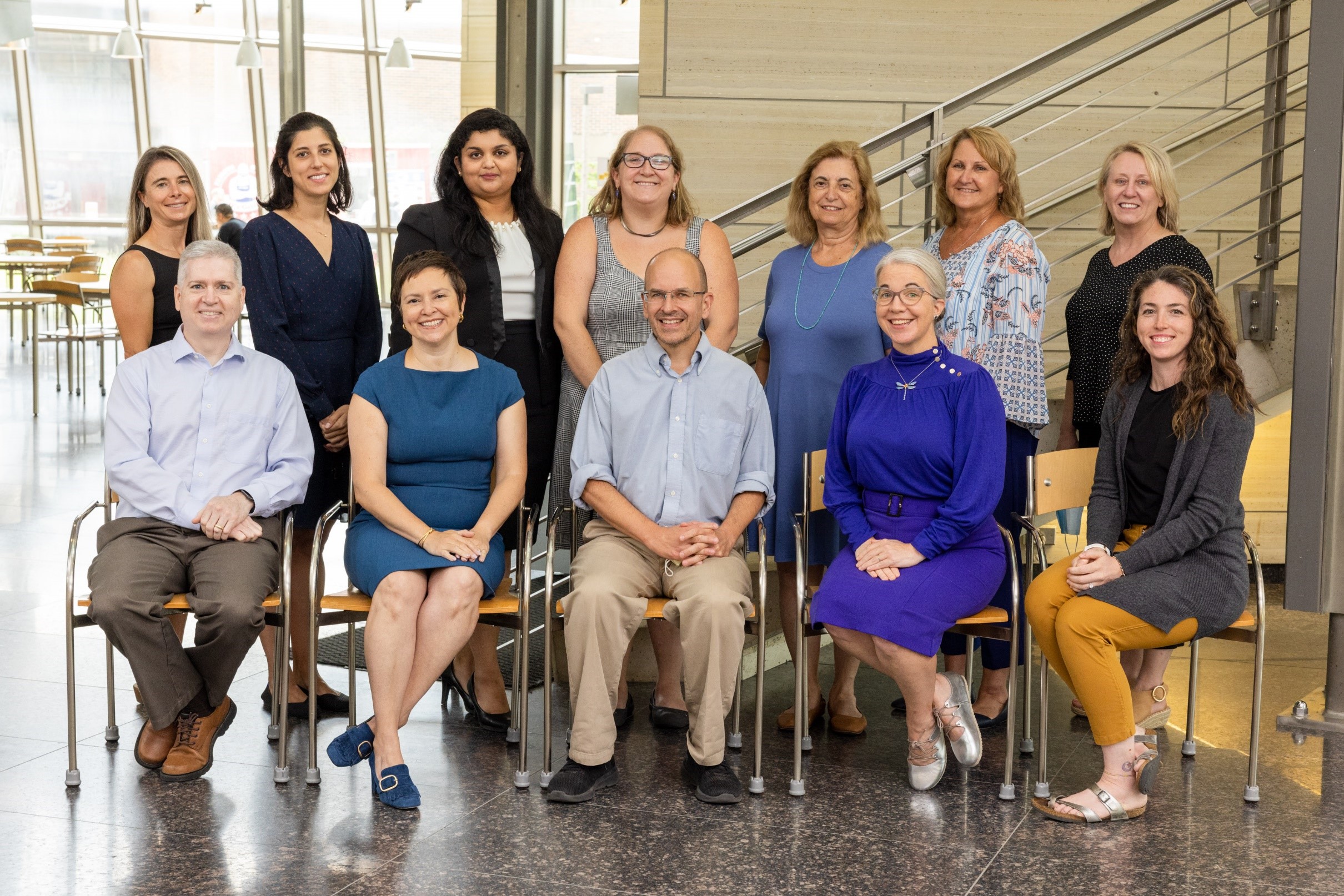 years of either basic science or clinical research.
years of either basic science or clinical research.
There are numerous opportunities for research in any field of interest across all subspecialties including within our very own division.
Basic research within our division includes the work of division director Dr. Andrew Norris. Visit our Research page on our academic website for an overview of research in the division of pediatric Endocrinology and Diabetes.
Department of Pediatric Faculty Research
Fellow Life
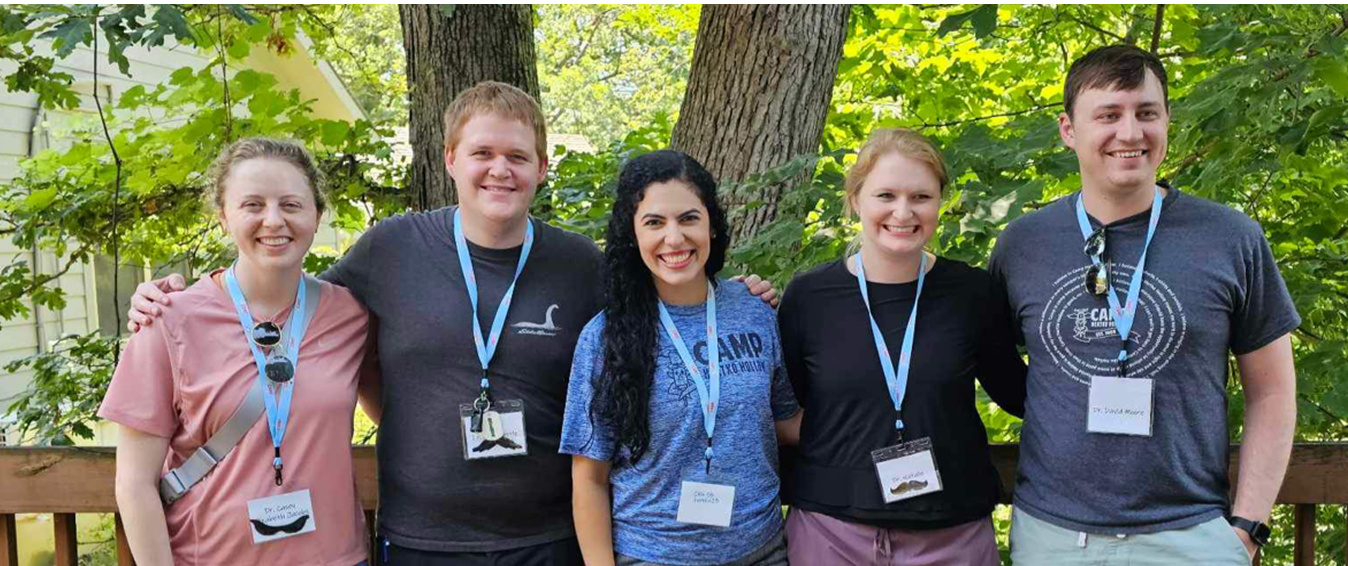
Our division actively publishes in both the basic science and clinical research realms. All fellows in our program are required to complete a total of research, usually in the realm of basic or clinical research. Fellows are encouraged to explore research within the division and collaborative research projects with other pediatric divisions. There are numerous opportunities for research in any field of interest across all subspecialties including within our very own division. Basic research within our division includes the work of Dr. Andrew Norris.
Fellows also have the opportunity to find research mentors outside the division. For example, previous fellows had mentors in Internal Medicine Endocrinology.
There are many opportunities to initiate or join a clinical research project. Some of our faculty members are involved in ongoing clinical trials.
You can find a list of our publications here.
Fellows are encouraged to attend and present at our institution's annual Pediatric Research Day

and national meetings (PES and ADA)
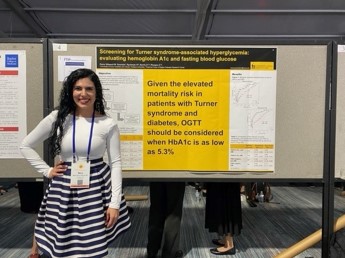
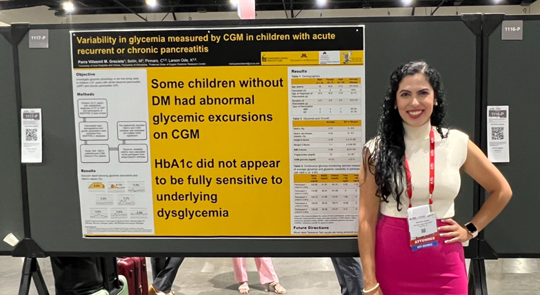
Contact Us
Direct Program-related Questions and Return Applications to:
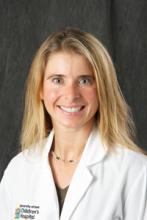
Vanessa Curtis, MD
Clinical Associate Professor of Pediatrics, Endocrinology and Diabetes
Pediatric Endocrinology Fellowship Director
200 Hawkins Dr.
Iowa City, Iowa 52242
Phone: 319-356-4443
Fax: 319-356-8170
Email: vanessa-curtis@uiowa.edu
or
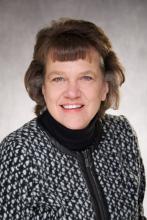
Teresa A. Schmidt
Pediatric Endocrinology Fellowship Coordinator
Stead Family Department of Pediatrics
University of Iowa Stead Family Children's Hospital
200 Hawkins Dr.
Iowa City, IA 52242
Phone: 319-356-4855
Fax: 319-356-8170
Email: teresa-schmidt-1@uiowa.edu
FAQs
Do you need external funding for any part of the fellowship?
No, all of our fellowship positions are funded through the Department of Pediatrics. However, fellows are eligible for funding through a National Institutes of Health (NIH) T32 Training grant through the Fraternal Order of Eagles Diabetes Research Center.
What tracks do you offer?
We have one track, but our small size allows fellows to customize the experience to focus on research, clinical care, and/or teaching. A fellow and their scholarly oversight committee (SOC) will continuously reevaluate progress and goals to refine learning experiences. The SOC is assembled by the fellow and consists of the fellow's primary research mentor(s) and senior faculty members with expertise relevant to the fellow's career interests. At least one member of the SOC is from a different clinical division, which provides additional career perspective.
How large is the Stead Family Children's Hospital (SFCH)?
University of Iowa Stead Family Children's Hospital is Iowa's only comprehensive children's hospital. We have 190 pediatric beds. Our first Children's hospital opened in 1919, and our beautiful new facility was opened in 2017. Last year, we cared for children from all of Iowa's 99 counties as well as 45 states and 20 countries.
Am I going to see enough volume and diversity in Iowa?
We provide care for the majority of pediatric endocrine patients in Iowa, and our catchment area also includes a significant portion of Missouri, Minnesota, Illinois, Wisconsin, and Nebraska. Our patients come from diverse backgrounds in terms of SES, race, and ethnicity, providing a rich clinical and social experience. We care for over 800 patients with type 1 diabetes and ~150 patients with type 2 diabetes. We have an average of 1-2 new onset diabetes patients per week, about half of whom present DKA. We do an average of 16 new consults per month.
How successful are your fellows at passing their pediatric endocrine boards?
In the past five years, our board pass rate for fellows is 100%.
Is there anything fun to do in Iowa, or is it just cornfields?
Iowa City has a small town feel but all of the amenities of a big city. Our visitors are always amazed at what a hidden gem we have here, and we'd love to show and tell you about it. Whether you prefer arts, history, music, outdoor activities, Big10 College sports, farm-table restaurants, or even craft breweries, you will find something to love about Iowa City.
Does the division provide educational funds?
Yes. Each fellow is provided funds to travel to at least one conference per year. Fellows are also encouraged and supported to apply for other travel grants to attend additional conferences. Fellows are also provided with funds to buy books and other educational supplies.
Can I go to Diabetes Camp?
Yes! Fellows are encouraged but not required to attend Camp Hertko Hollow, Iowa's camp for kids with diabetes which was founded in 1968 by Dr. Hertko.
What clinical, research, and educational topics are faculty and fellows interested in?
Check out Dr. Norris's blog for the latest divisional news and topics.
How to Apply
If you are interested in applying to the Pediatric Endocrinology Fellowship Program, applications are accepted through ERAS. Please include your resume/curriculum vitae, personal statement, medical school Dean’s letter, pediatric residency director letter, two additional faculty (or other appropriate individuals of your choice) letters, USMLE Step 1 and Step 2 examination scores, copy of ECFMG certificate (applies to international medical graduates only), copy of Permanent Visa (if applicable), copy of medical school diploma.
Applications will be accepted as long as interview slots are still available. Last day to interview will be the end of November.
Direct Program-related and Application Questions to:
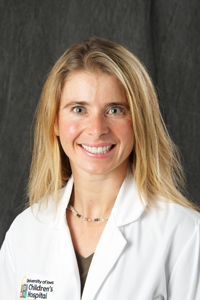
Vanessa Curtis, MD
Clinical Associtate Professor of Pediatrics, Endocrinology and Diabetes
Pediatric Endocrinology Fellowship Director
200 Hawkins Dr.
Iowa City, Iowa 52242Phone: 1-319-356-4443
E-mail: vanessa-curtis@uiowa.edu
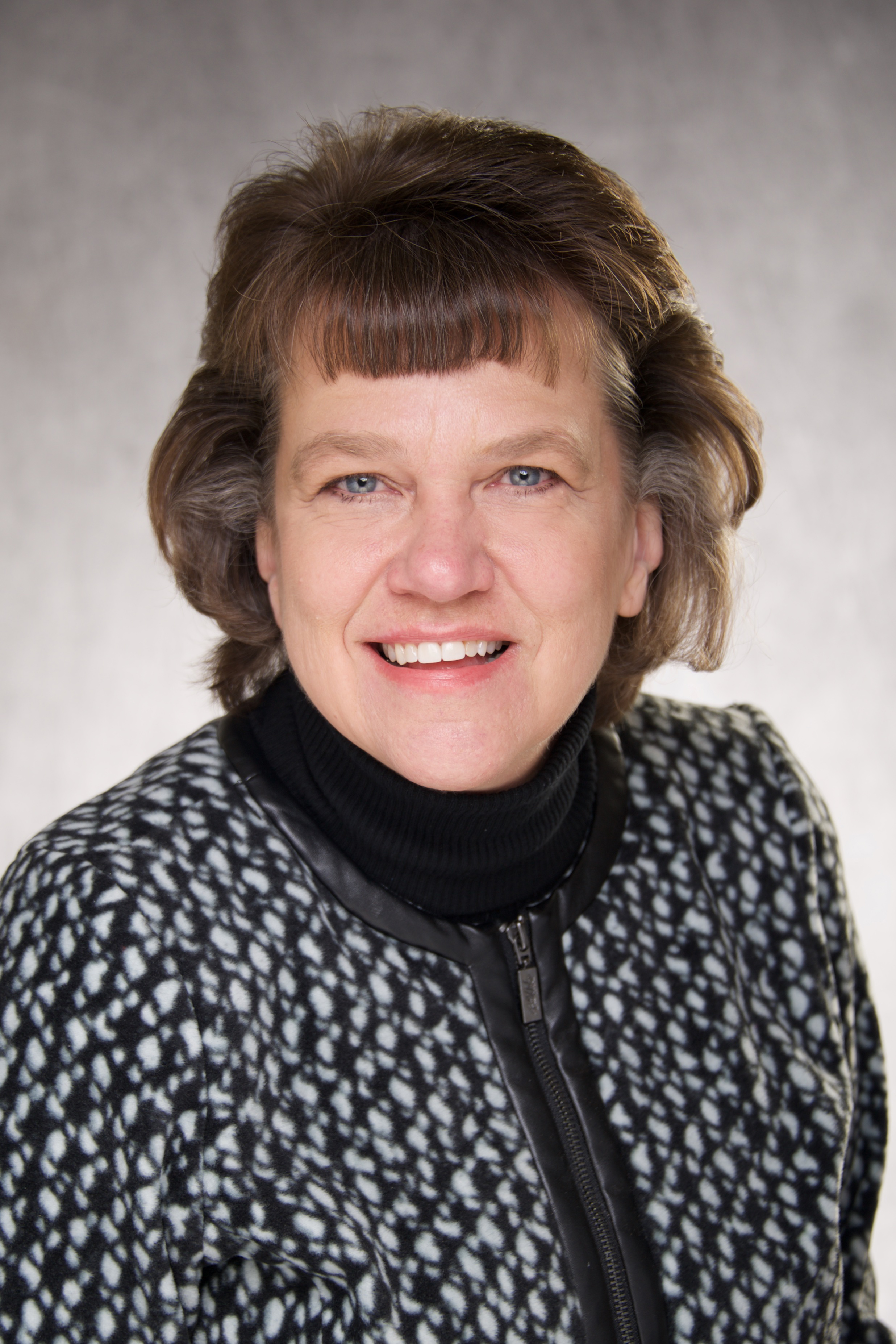
Teresa A. Schmidt
Endocrinology Fellowship Coordinator
Department of Pediatrics
University of Iowa Children's Hospital
200 Hawkins Dr.
Iowa City, IA 52242
Phone: 319-356-4855
Fax: 319-356-8170
Email: teresa-schmidt-1@uiowa.edu
Deadline
Pediatric Endocrinology will be shifting to participation in the Fall Subspecialty Match through NRMP. Applications will be accepted through ERAS and will be reviewed starting in July each year. Applications will be accepted as long as interview slots are still available. Last day to interview will be the end of October each year.
Criteria for Candidacy
We require completion of a U.S. residency program in Pediatrics. Please submit applications through the Electronic Residency Application System (ERAS).
Pediatric Board Certification
Medical specialty certification in the United States is a voluntary process which serves multiple purposes for the trainee and the public. The goal of this program is for all trainees to meet board eligibility criteria to sit the American Board of Pediatrics' Endocrinology boards by the end of their fellowship training.
Certification is:
- One mission of the training program to produce trainees who meet board eligibility criteria.
- Distinguishes a physician as someone with a distinct level of expertise.
- Provides more opportunities when applying for employment.
- Presents resources and tools by the American Board of Medical Specialties (ABMS).
- A commitment to life-long improvement for providing the best patient care.
- Elevates physicians into the ranks of doctors committed to the highest standards of healthcare.
Our program provides enough clinical flexibility within the first four months of fellowship training to incoming first year fellows to study for and take their General Pediatric Board Exam. Prometric testing centers are conveniently located within 30 minutes to one hour away depending on desired location.
For more information visit the American Board of Pediatrics for specifics on board certification requirements.
The Interview Timeline
Our fellowship coordinator, Teresa A. Schmidt, will contact the fellowship candidate using the ERAS scheduling program regarding the acceptance of a recruitment interview. We generally interview applicants between August and November. After an interview date is confirmed, the applicant will have an itinerary arranged. A map of the hospital and directions to our office will be provided when the itinerary is completed.
The interview process will involve the most of the day (8 am - 4 pm) where the applicant will receive an overview of the program and a complimentary lunch. Applicants will meet with the faculty members from within and outside the Division as well as current fellows and support staff. A tour of the facilities and the outpatient clinic will be provided.
Travel and hotel reservations are made and paid for by the applicant. Accommodations and recommendations are available upon request.
Our People
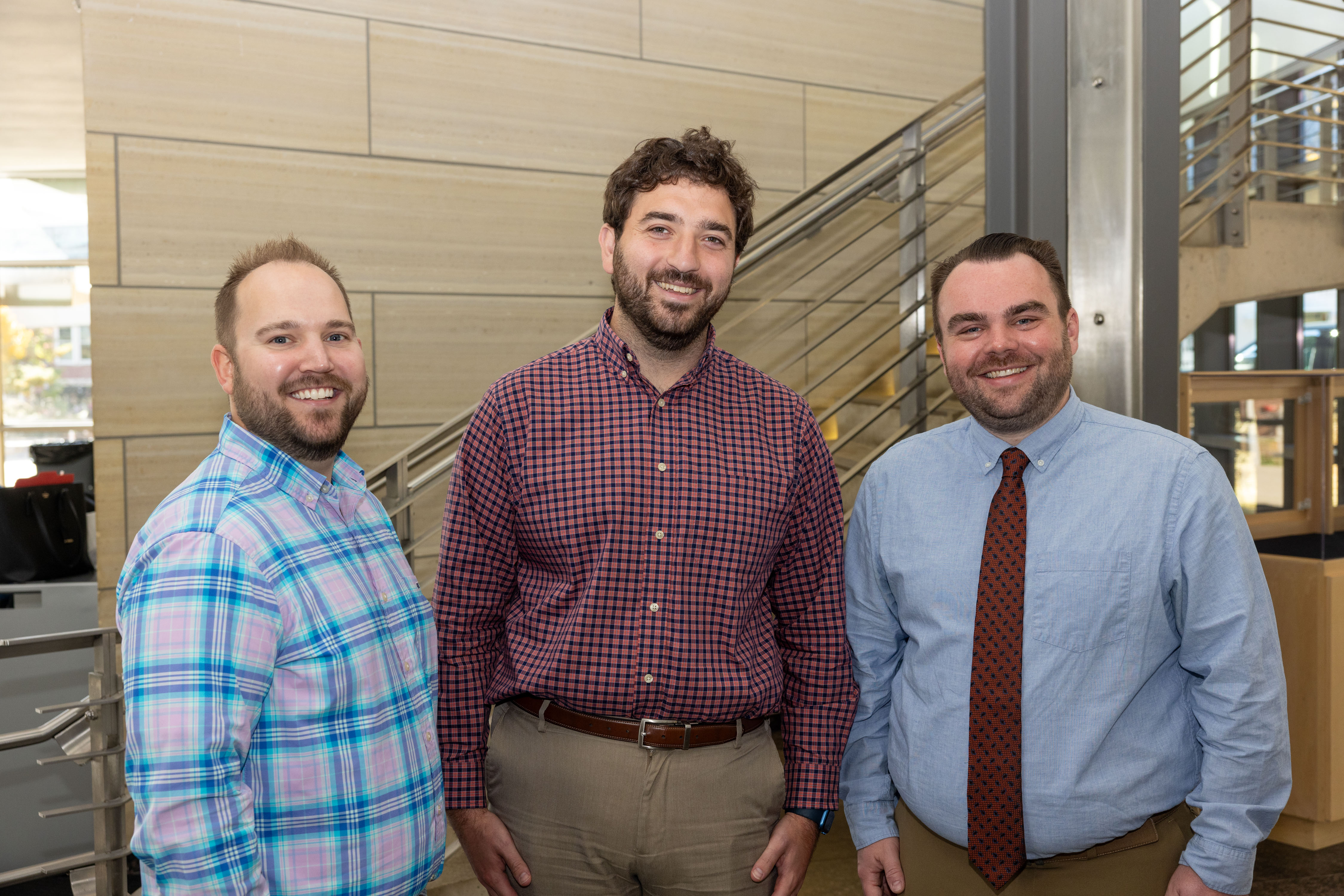
Our Division Includes:
- Ten faculty members
- Three fellows
- Two certified nurse practitioners
- Two full-time endocrine nurses
- Five certified diabetes educators
- Clinical research team
- Dedicated office staff
- Division specific scheduler
- Clinical psychologist
- Registered dietitian
- Social worker
Current Fellows
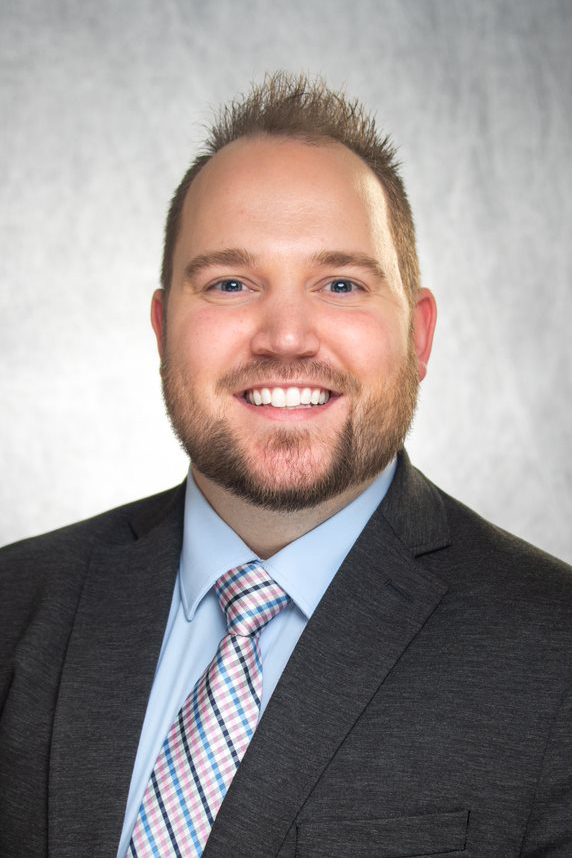
Kyle Baum, DO
Benjamin Palmer, DO
(2022-2025)
Medical School: Des Moines University College of Osteopathic Medicine
Residency: University of Iowa Stead Family Department of Pediatrics (2019-2022)
Research Interests: Assessing Physical Activity in Youth with Type 1
Gregory Power, MD
(2024-2027)
Medical School: University of Iowa Roy J and Lucille A Carver College of Medicine (2017-2021)
Residency: Pediatrics; Indiana University Schol of Medicine; Indianapolis, IN (2021-2024)
Past Fellows
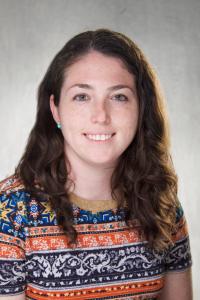
Catherina T Pinnaro, MD
(2017-2020)
Medical School: New York Medical College
Residency: University of Iowa Stead Family Department of Pediatrics (2013-2016)
Chief Resident: University of Iowa Stead Family Department of Pediatrics (2016-2017)
Research Interests: Genetic Modifiers of Chromosomal Disorders
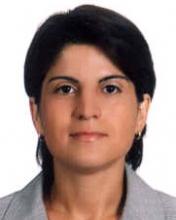
Eray Savgan-Gurol, MD
Mass General Hospital, Boston, MA
Medical Education: Istanbul University, Cerrahpasa School of Medicine
Residency: Istanbul University, Cerrahpasa School of Medicine
Residency: University of Iowa Children's Hospital
Fellowship: Massachusetts General Hospital
Fellowship: University of Iowa Hospitals and Clinics, Iowa City, IA
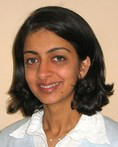
Rinku Mehra, MD
Children's National Medical Center, Washington, DC
Medical Education: University of Virginia School of Medicine
Residency: Rush Presbyterian University Medical College Chicago, IL
Fellowship: University of Iowa Hospitals and Clinics Iowa City, IA
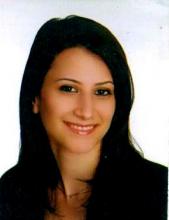
Areej Younes, MD
Nationwide Children's Hospital, Columbus, OH
Medical School: Jordan University of Science And Technology, Jordan
Residency: University of Iowa
Fellowship: University of Iowa Hospitals and Clinics Iowa City, IA

Mercy Rajesh, MBBS
Unity Point, Cedar Rapids, IA
Medical School: J.J.M. Medical College, India
Residency: Driscoll Children's Hospital, Corpus Christi, TX
Research Interests: Bardet Biedl Syndrome and Insulin Receptor Trafficking
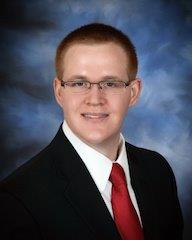
Alex Tuttle, MD
(2020-2023)
Medical School: Indiana University School of Medicine
Residency: University of Iowa Stead Family Department of Pediatrics (2017-2020)
Research Interests: Medical Education, T1D
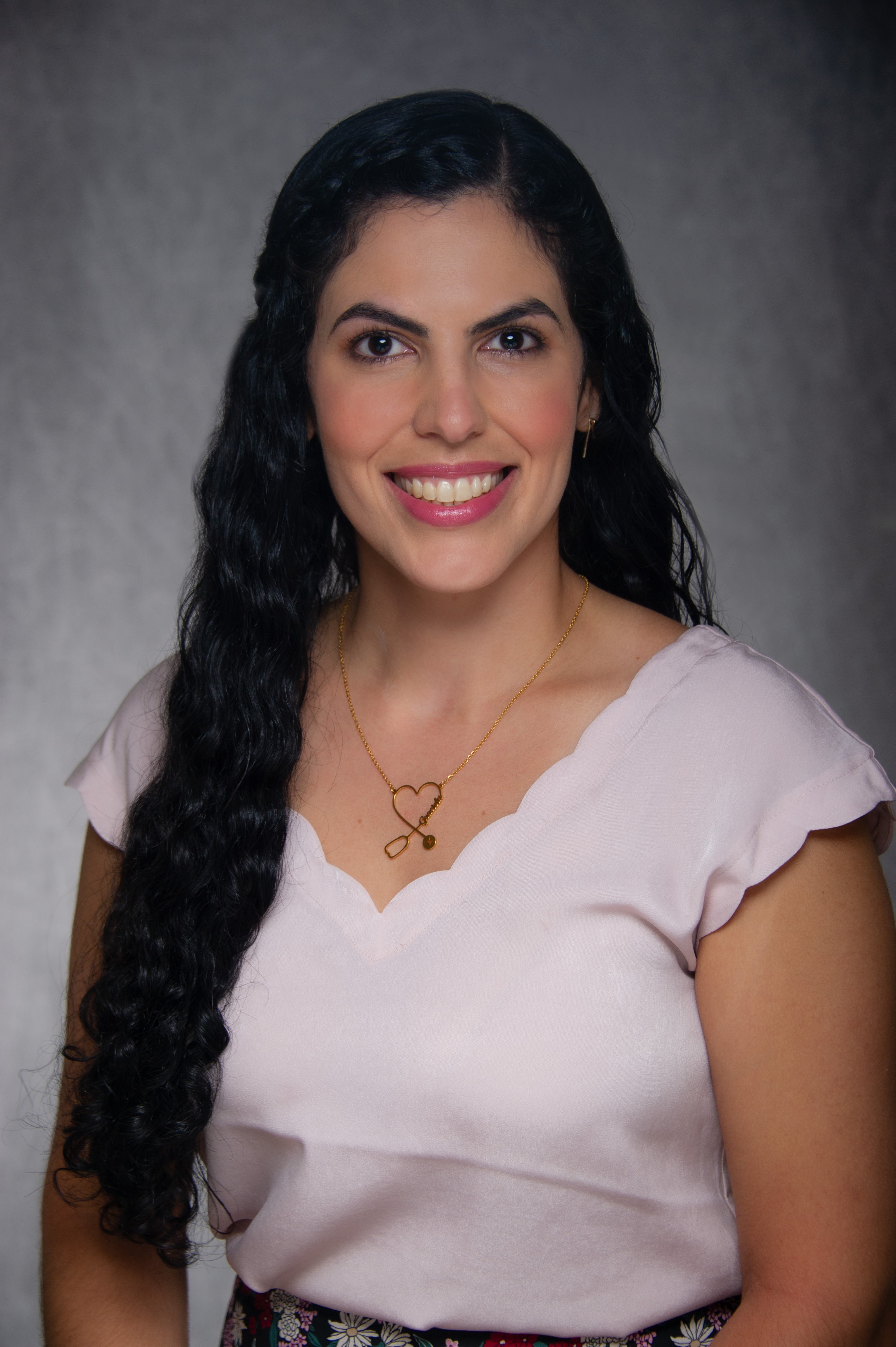
Maria Graciela Parra Villasmil, MD
(2021-2024)
Medical School: University of Zulia
Residency: University of Iowa Stead Family Department of Pediatrics
Research Interests: Mechanisms of Dysglycemia and Development of Diabetes in Children with Acute recurrent or Chronic Pancreatitis on INSPPIRE-2
Fellowship Director
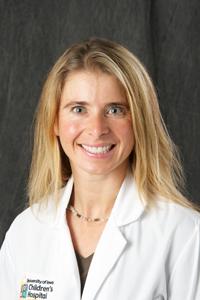
Vanessa Curtis, MD
Clinical Associate Professor of Pediatrics - Endocrinology and Diabetes
Pediatric Endocrinology Fellowship Director
200 Hawkins Drive 2024 BT
Iowa City, Iowa 52242
Phone: 1-319-356-4443
E-mail: vanessa-curtis@uiowa.edu
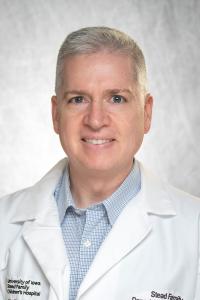
Michael Tansey, MD
Clinical Professor of Pediatrics, Endocrinology and Diabetes
Pediatric Endocrinology Associate Fellowship Director
200 Hawkins Drive 2015 BT
Iowa City, Iowa 52242
Phone: 1-319-356-4511
Fax: (319)356-8170
Email: michael-tansey@uiowa.edu
Welcome to the Stead Family Department of Pediatrics
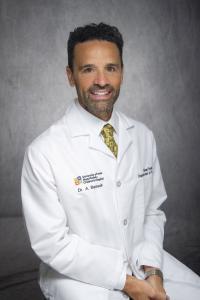
Alexander Bassuk, MD, PhD
Chair and Department Executive Officer
Welcome to the University of Iowa's Stead Family Children's Hospital. We are proud to showcase our extraordinary clinical care, dedication to the education of students and young physicians, and our world-class research programs.
Our comprehensive medical, surgical, and nursing services span the full spectrum of pediatric care. The consistently high rankings we receive on national and international benchmarks attest to the exceptional quality of care we provide. With more than 127,000 annual outpatient visits and more than 10,000 admissions to the 165 beds at University of Iowa's Stead Family Children's Hospital, we draw patients regionally, nationally, and internationally. Our commitment to family-centered care and our outstanding facilities have been praised for their innovative and patient-friendly design.
We are dedicated to excellence in the education of medical students, residents, and fellows, as reflected by a competency-based curriculum that is designed to provide practitioners with comprehensive knowledge and outstanding skills. The clinical and research efforts of trainees are closely mentored and nurtured. Our graduates move on to successful careers in clinical practice and academic pediatrics.
From genomics to cancer biology, from clinical trials to outcomes research, the department consistently ranks among the top National Institutes of Health (NIH) funded Pediatric Departments nationally. Our faculty and staff are engaged in cutting edge basic science and patient-oriented research in our unwavering quest to improve the health and well-being of all children.
Meet our Division and Faculty
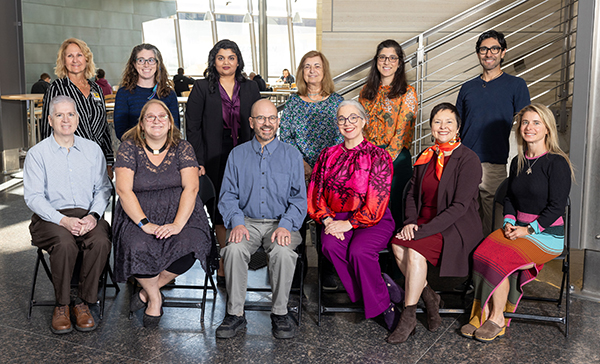
We have a diverse faculty with wide-ranging clinical and research interests. Our faculty are nationally and internationally known for their work in research education and clinical areas. We are also pleased to have several new faculty who have brought with them new perspectives and energy. All clinical faculty participate in the fellowship, clinical practice, and research.
